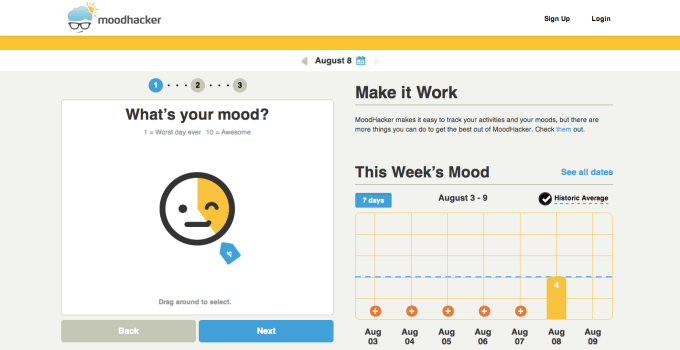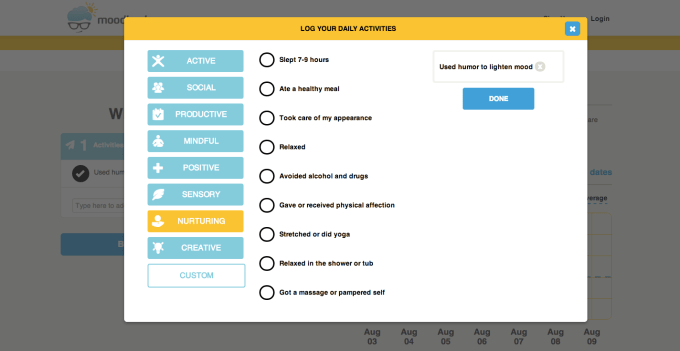Depression doesn’t just ravage a person’s mental well-being. According to the Centers for Disease Control, depression is also one of the leading causes of workplace absenteeism. It is estimated to cause 200 million lost workdays each year at a cost of $17 billion to $44 billion for employers. Now a health technology company Orcas wants to help boost psychological well-being through a program called MoodHacker that employers can offer to their workers.
Orcas is making the program available through employee assistance program provider Chestnut Global Partners. So far, it is being offered to the 50,000 U.S.-based employees of a Fortune 100 manufacturing company.
MoodHacker, which can be accessed through a website and mobile app, combines exercises and techniques from positive psychology and the “Coping with Depression” cognitive behavior therapy program, which was created by Dr. Peter Lewinsohn of the Oregon Research Institute. It was further developed by Dr. John Seeley, who worked with ORCAS to adapt the program for MoodHacker.
“MoodHacker aims to activate and engage employees in positive cognitive and behavioral skills to improve their mood, reduce depressive symptoms, and prevent escalation to clinical depression,” Michael Mulvihill, the CEO of ORCAS, said in an email.
Once employees logs onto MoodHacker, it asks them to rate their mood from 1 to 10. It also shows a list of activities sorted into different categories (active, social, productive, mindful, positive, sensory, nurturing, creative) that can potentially improve mental well-being. For example, “active” includes exercise, while “sensory” includes things like “used humor to lighten the mood” or “listened to music.”


Users can also add custom activities and read articles and watch videos on mental health from MoodHacker’s library, including ones that help people figure out if they need to seek further help for depression. Emails are also sent to prompt daily mood and activity tracking.
One potential shortcoming of MoodHacker is that employees might be wary about providing so much information about their mental state and daily activities to software provided by their workplace.
Mulvihill says that MoodHacker has taken several measures to protect the privacy of each person who uses MoodHacker.
“Employers that offer MoodHacker to their employees are never given access to individual employees’ data – only de-identified aggregate outcome reports. Our data analytics engine was built using a Hadoop infrastructure in order to receive, store, and process complicated sets of data. This structure maximizes scalability and ensures HIPAA privacy.”
He adds that use of MoodHacker is never mandatory and it is instead offered to employees as part of their workplace’s benefits package.
Though some employees might not want to use MoodHacker and instead look for resources on their own, I think it’s a step in the right direction for workplaces to acknowledge that mental well-being is just as important as the physical health of their workforce. Visit Orcas’ site for more information about MoodHacker.
Image by Flickr user Jim Pennucci used under a Creative Commons 2.0 license
